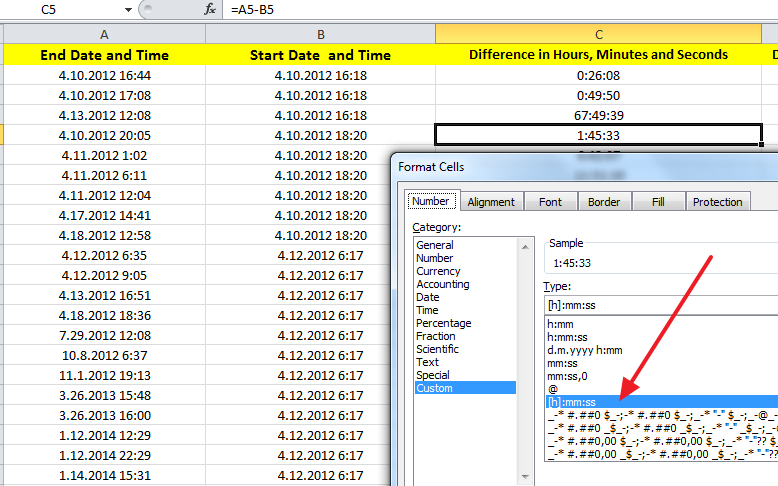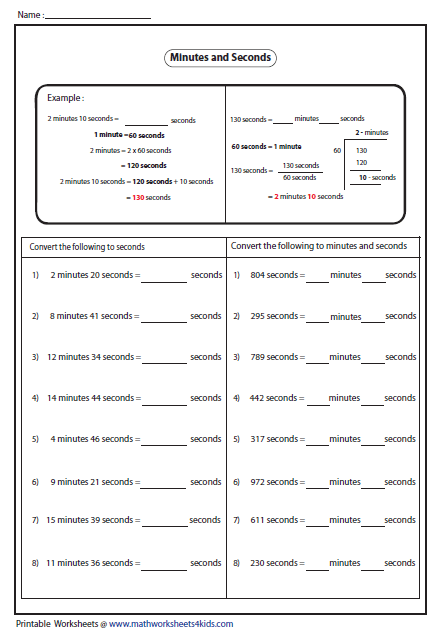

Minute is also a unit used in geometry for measuring angle, as well as for defining latitude and longitude of a point on the surface of earth. An hour is a unit of time equal to 60 minutes, or 3,600 seconds. Note: You can increase or decrease the accuracy of this answer by selecting the number of significant figures required from the options. Minutes to Hundredths Chart If you have employees who earn an hourly wage and you enter minutes as well as hours, use this chart to convert minutes to decimals. For a more accurate answer please select decimal from the options above the result. This measurement unit is considered to be relatively new (especially comparing to the ones of hour or second), and it starts its history only in the Middle Ages, when the first water powered more precise time keeping devices were invented instead of common solar or sand clocks. Minutes to Hour (Swap Units) Format Accuracy Note: Fractional results are rounded to the nearest 1/64. Minute is a unit of time measurement that is equal to 1/60 of an hour or 60 seconds. Hour as a time measurement unit is extensively used in science and is applied for defining various related measurement units like kilometers per hour, ampere-hour, kilowatt-hour, etc. Though the history of using an hour as a part of solar day is believed to be starting from the epochs of Ancient Egypt, the concept of an hour as we know it now emerged in the early 13 th century, when scientists in Ancient Greece came up with the idea of dividing a solar day exactly into 24 equal parts. It can convert seconds to minutes, seconds to hours, hours to minutes, or virtually anything. The unit is used and recognized by SI and has the symbol of h. Adding time with a conventional calculator requires you to first convert your minutes into a decimal number, by dividing the minutes into 60. This page adds up any amount of hours, minutes and seconds. However, the civilizations first to invent this used either a 60-based or a 12-based system (duodecimal). It is suggested that the reasons for the origins of the system are based on the fact that people are able to count to twelve on one hand (using the thumb). Hour is a common time measurement unit equal to 60 minutes, 3,600 seconds, or 1/24 of solar day. It has sixty as its base: 60 minutes in an hour, 60 seconds in a minute. Also, you can use the hours to minutes conversion chart on the bottom of the page. For your convenience, there is also some useful information related to this kind of conversions. Example: Convert 12 hours to min We know 1 h 60 min 1 min 0.0166666667 h. It is also used as measuring unit of angle. It is denoted as 'min' and 60 seconds in a one minute and one minute is equal to 0.0166666667 hours. Steps: First of all, change the format of C5:C11from Generalto Number. The relationship between time units is, 1 Day 24 Hours 2460 or 1440 Minutes Let’s apply the method step by step. For example, 1 hour and 30 minutes is the same as 90 minutes. Use Multiplication to Convert Hours and Minutes to Minutes The first method is the multiplication of time durations to convert them. This webpage offers an effective online hours to minutes calculator which can be used at any time for making this kind of time measurement unit conversions. A minute is measuring unit of time in a standard international measuring system. Use this easy and mobile-friendly calculator to convert hours, minutes, and seconds into a decimal number of minutes. You'd do the maths in a similar way if you were to answer a question "if something happens X times per week, how many times it happens per minute?" Take look at the reverse time calculator to find out how often something happens per unit of time.We're very often in need of knowing how many minutes a certain amount of time in hours will take. You can also check in the time converter calculator (the value there is rounded). Here, as we know, 1 Day 24 hours and 1 Hour 60 minutes, so we multiplied Cell C5 by 2460 which is 1440 to convert the time in hours to minutes in Excel. The result equals 0.00000165343 in a decimal form.

Now, we want to go from a second to a week, so substitute min in the fourth formula with 1/60 h, then substitute h with 1/24 d, and so on, until you get:

And what if you want to go the other way round - convert from "smaller units" to "bigger units"? For example, want to know what part of a week is one second?įrom the formulas above, you need to calculate what the units on the right side of the equation are equal to:ġ/7 w = d (we divided both sides of the equation by 7)ĭo the same with all the equations, and you'll get:


 0 kommentar(er)
0 kommentar(er)
